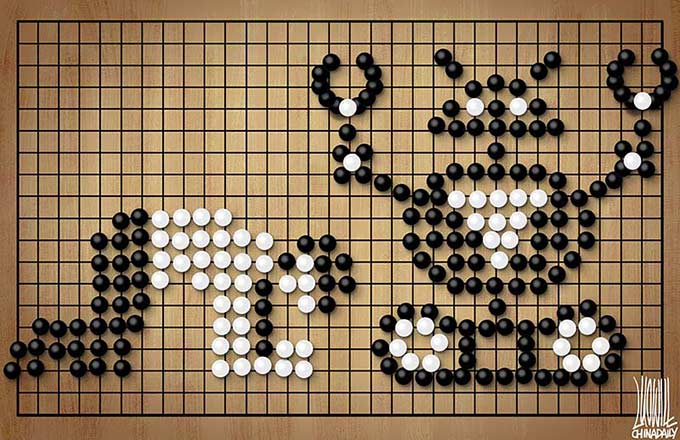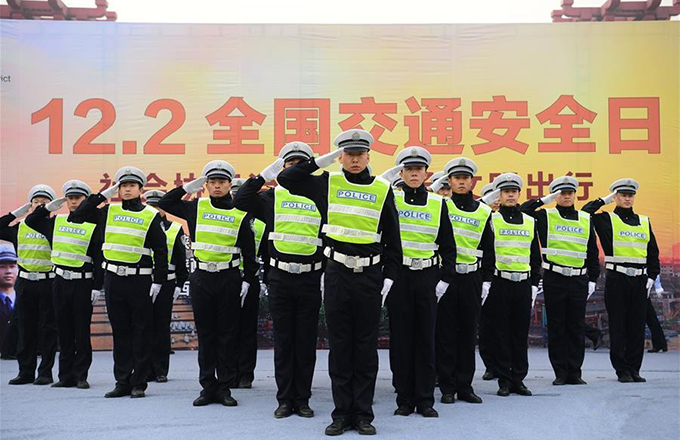Practical measures needed to avoid conflict at sea
At the last Shangri-La Dialogue and at other workshops in the Asia-Pacific region, how to enhance maritime confidence-building measures or prevent conflict at sea have always been hot topics.
 |
|
Zhou Bo is?a senior colonel and director of security cooperation, Office for International Military Cooperation, Ministry of National Defense. [Photo/China Daily] |
But how to avoid conflict at sea?
Territorial disputes must be resolved through peaceful negotiation. China not only upholds this principle but also practices it. China has resolved its land border disputes issues with 12 neighboring countries which accounts for 90 percent of China’s land border. China has also resolved maritime delimitation in the Beibu Gulf with Vietnam. On the South China Sea issue, China and some ASEAN member states have resolved to settle their disputes through negotiations between states directly concerned in accordance with international laws and the 1982 UN Convention on the Law of the Sea. In fact, last month China and the Philippines started the first round of direct bilateral talks on the South China Sea issue, and senior diplomats of China and ASEAN agreed to a framework for the Code of Conduct in the South China Sea.
Military activities near the coast of a country which could consider them unfriendly or even hostile should be reduced and avoided. This is the most direct and effective way of avoiding a conflict at sea. Although there are different interpretations of UNCLOS, it clearly stipulates that in exercising their rights of freedom of navigation and overflight, states shall have due regard to the rights and duties of the coastal state and shall comply with the laws and regulations of that coastal state. As early as 1998, China made clear in its Law on the Exclusive Economic Zone and the Continental Shelf that all states shall, on the premise that they comply with international law and the laws and regulations of the People’s Republic of China, enjoy the freedom of navigation in and flight over its EEZ. About 100,000 ships transit through the South China Sea each year and no countries have complained that the freedom of navigation of their ships has been affected. So there is no need to turn freedom of navigation into an issue and impose one country’s understanding of this concept upon others. We hope those countries honor their promise of not taking sides and stop conducting joint patrol or exercises in the sensitive waters.
International rules and norms must be observed. All countries must implement the 1972 Convention on the International Regulations for Preventing Collisions at Sea and member states of the Western Pacific Naval Symposium should honor the 2014 Code of Conduct for Unplanned Encounters at Sea (CUES) and avoid collision. And the Chinese and the US militaries should further enhance the “Mutual Notification Mechanism of Major Military Activities” and “Rules of Behavior for Safety of Maritime and Air Encounters” to avoid conflict and confrontation.
Dialogues and exercises designed to avoid dangerous maritime and air activities should be encouraged. China’s Ministry of Defense has established a direct communication mechanism with the US, Russia, the ROK and Vietnam. China has also conducted extensive dialogues and consultations with many other countries. In 1998, China and the US established a consultation mechanism to strengthen military maritime safety, and have conducted a few exercises on CUES. And Beijing and Tokyo have held many rounds of consultations on establishing a maritime and air liaison mechanism. We hope Japan will demonstrate flexibility and work with China for an early conclusion of the mechanism.
The Chinese military has attended all the meetings on maritime security cooperation under the ASEAN Regional Forum and ASEAN Defense Ministers’ Meeting-Plus its Eight Dialogue Partners. And Beijing is ready to explore the possibility of setting up a China-ASEAN defense communication mechanism. We believe all these consultations, dialogues and cooperation have promoted maritime security and will help avoid maritime conflict.



















